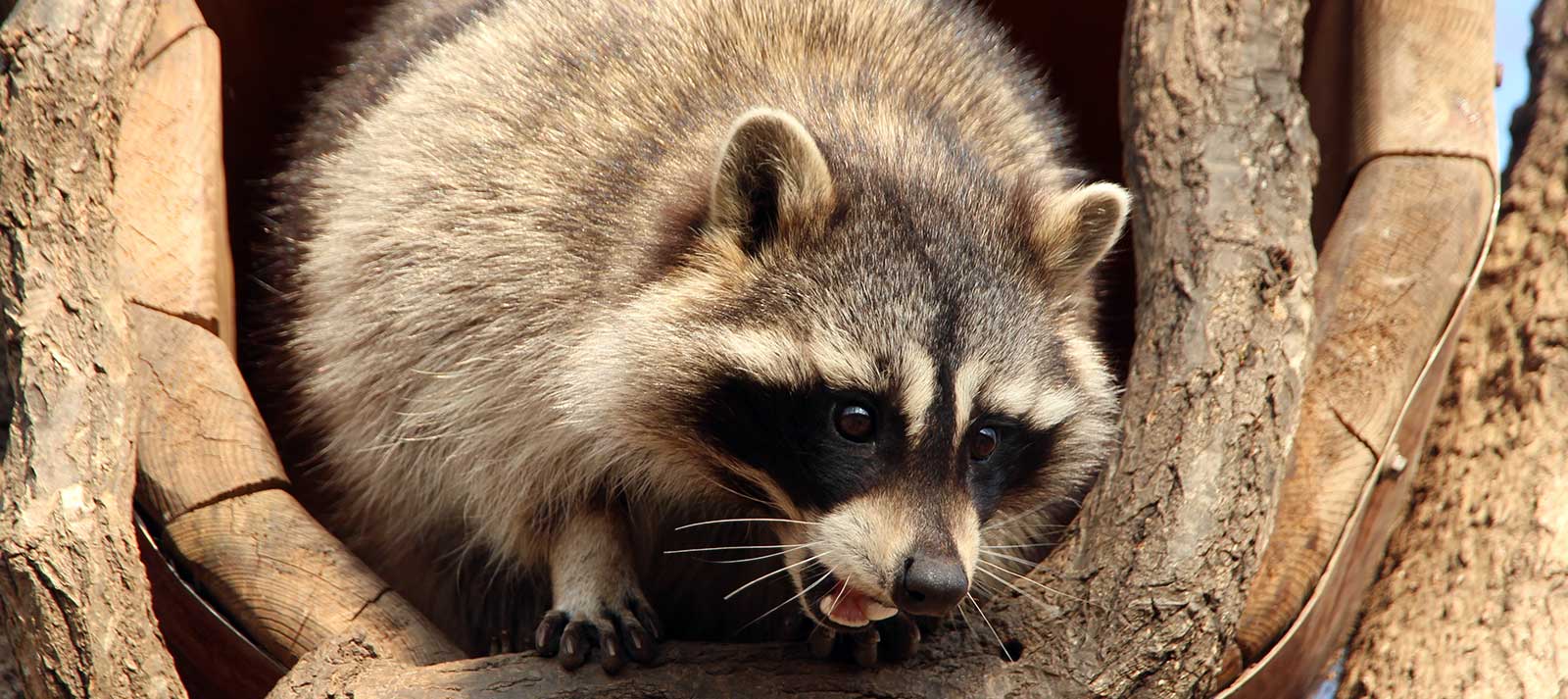Did you know that in the first five months of 2023, there were nearly 90 reported cases of raccoon bites and scratches in the City of Toronto? This represents a 117% increase compared to the average number of reported incidents between 2018-2022.

It’s no surprise that urban areas, like Toronto, provide raccoons with a consistent source of food and shelter. Now, with the winter months ahead, raccoons will become even more prevalent on the streets of Toronto as they look for a place to call home. As a result, they will likely venture farther from their usual habitat to find a cozy spot.
But be careful—with their cute little bandit masks and playful demeanor, raccoons may seem harmless. Make sure to keep your distance to avoid any potential encounters.
Toronto’s Public Health Advisory
Toronto Public Health (TPH) has advised residents to avoid contact with raccoons and to take preventive measures to reduce the risk of an encounter. The surge in reported raccoon attack, bites and scratches, as well as the increased number of sick and injured raccoons, has prompted the department to issue a public warning to help residents reduce their risk of contracting raccoon-related diseases, including rabies.
Of the nearly 90 reported cases of raccoon bites and scratches in early 2023, more than 80% of the people involved had to undergo rabies post-exposure prophylaxis treatment. Further investigation of these cases found that the injuries were sustained because of deliberate interaction with a raccoon.
Are Raccoon Bites and Scratches Dangerous?
Yes, raccoon bites and scratches can be a serious situation, especially if the raccoon in question is carrying a disease. Raccoons have extremely sharp claws and teeth and can cause a serious wound to the surface of your skin.
A close encounter can occur day or night as these creatures become more comfortable being around humans. You may be tempted to pet, feed, or even get close to a raccoon for social media pictures. This can turn into a dangerous incident very quickly if the raccoon feels threatened.
If a raccoon bites or scratches you, you may notice a small puncture wound or marking on your skin, as well as redness and swelling in the area. This alone may not be anymore significant than a cat scratch or bite but the raccoon could spread a life-threatening disease to you.
Why Do Raccoons Bite and Scratch People?
There are several reasons why a raccoon will attack, bite, or scratch a human:
- Protection of Kits: Raccoons are notorious for taking all measures to protect their kits (babies) against attacks or threats. Illness: If the raccoon is infected with an illness or disease, it may cause them to display aggressive behaviour, such as attacking people or small animals nearby, even without being provoked.
- Hunger: A hungry raccoon will display hostile behaviour when a person or animal appears to be a threat or becomes an obstacle to a food source.
Health Risks Associated with Raccoon Contact
If you are bitten or scratched by a raccoon, it is considered an emergency because there are serious health risks involved, especially if the animal has rabies.
Rabies is a viral disease transmitted through saliva from an infected raccoon who may be showing signs of aggression, foaming at the mouth, or erratic behaviour. They may also be emitting strange noises. When a human is bitten by a rabid raccoon, the virus affects the central nervous system by causing inflammation of the brain. Water left out for pets may also become contaminated, spread to pets, and infect human by means of licking.
Human rabies symptoms include headache, fever, weakness, confusion, agitation, and hallucination—culminating in a comatose state and subsequent death.
As raccoons are wild animals, they may also be infected with ticks that transmit Lyme disease. This infection of the bacterium Borrelia burgdorferi can be treated and possibly cured if caught early; however, it can cause serious long-lasting side effects.
If you encounter the bodily fluids of a raccoon infected with the bacterial infection known as leptospirosis, you may experience muscle pain, fever, headaches, and kidney and/or liver damage.
Other health concerns include roundworm, salmonella, and giardia. All these conditions originate from an infected raccoon’s feces.
Hire Hawkeye for Raccoon Control and Removal
For more information on how to avoid raccoon encounters, talk to the team at Hawkeye Bird and Animal Control. Our certified team of trained professionals will perform a thorough inspection of your property, assess risk factors and vulnerabilities, and propose the proper solutions for your situation.
As the only pest bird and animal/wildlife control company in Canada to be designated "Certified Wildlife Control Professional" AND hold the following licenses: Trapping of Fur Bearing Animals Permit, Falconry Permit, and Pest Control License, we guarantee permanent results.
Call us at (416) 429-5393 or email [email protected] if you need efficient raccoon control or raccoon removal solutions.














